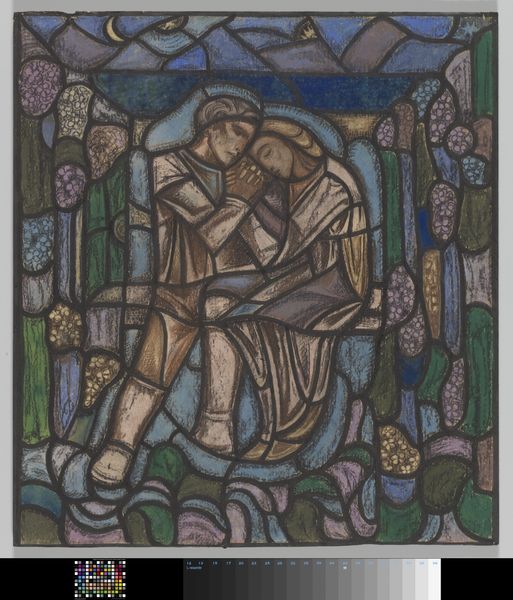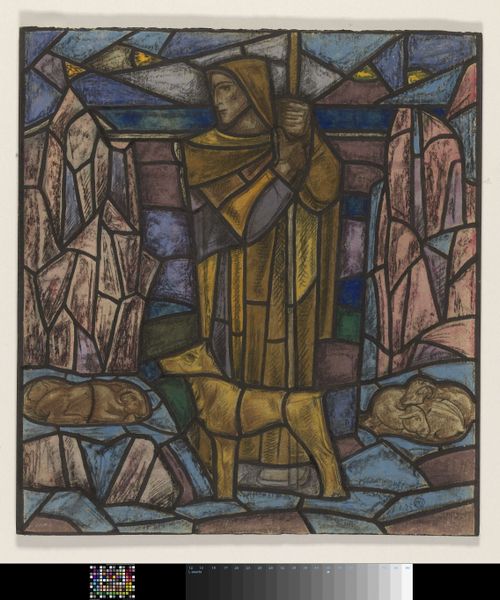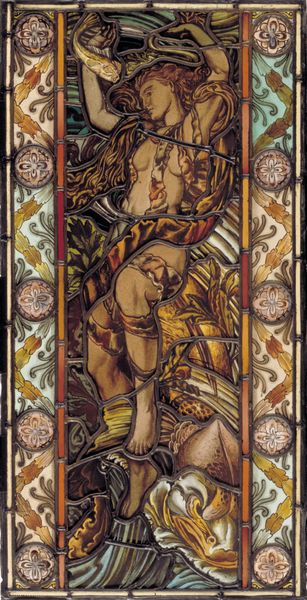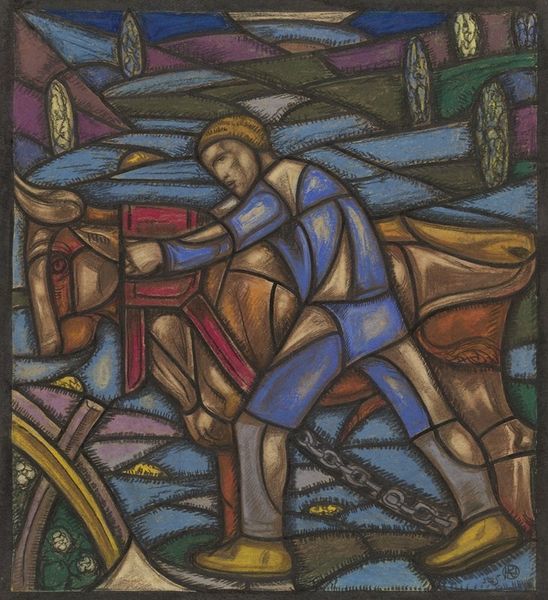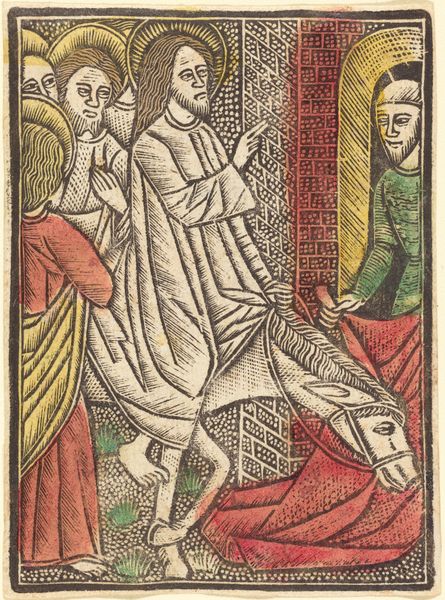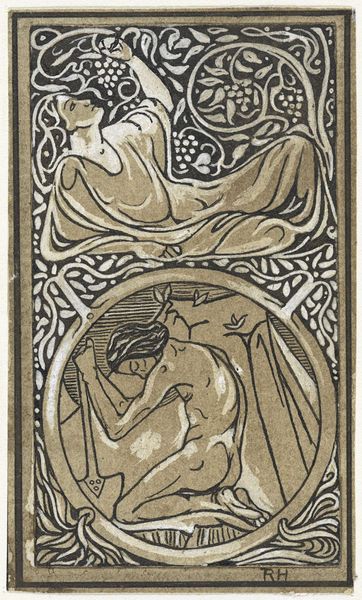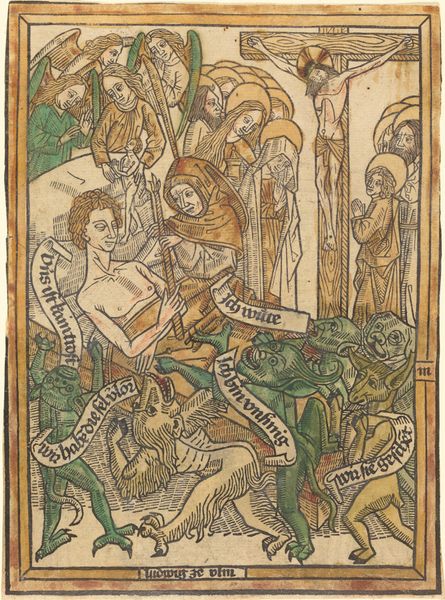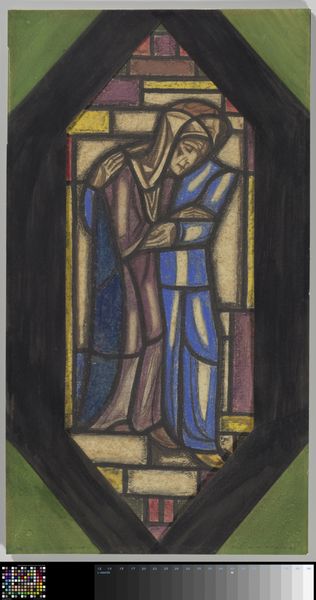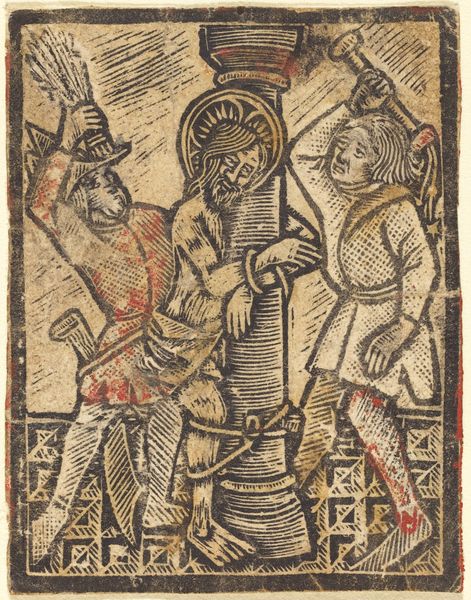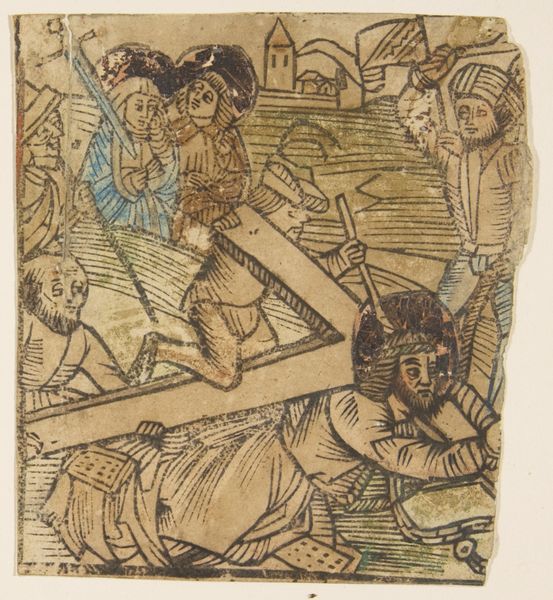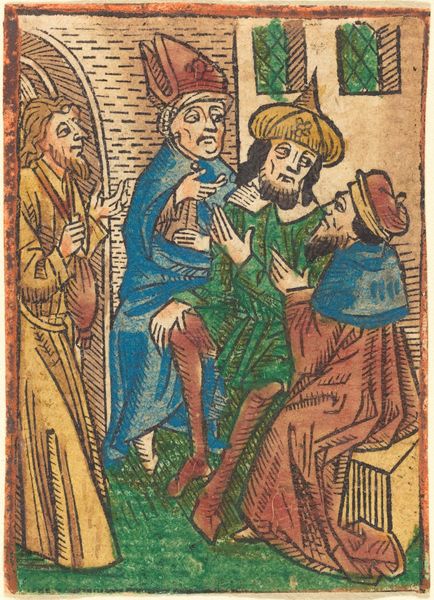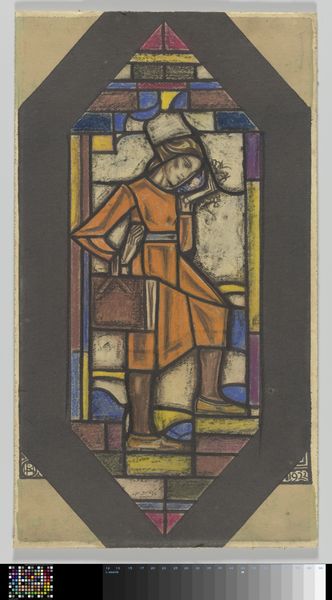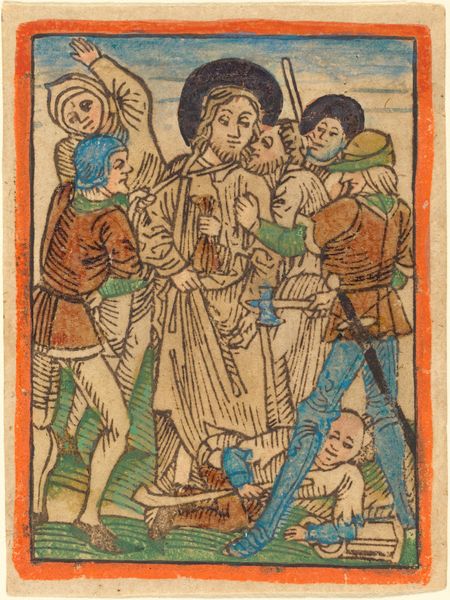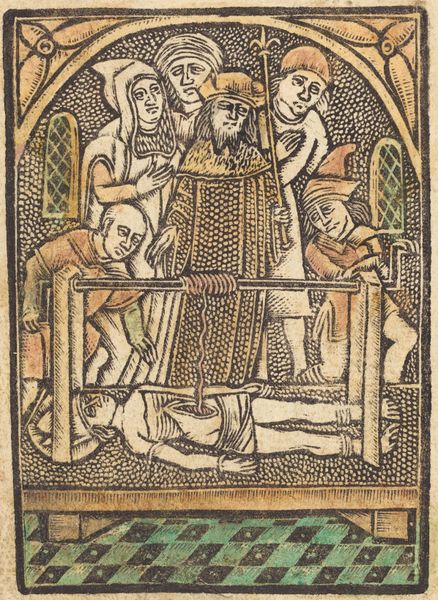
Ontwerp voor raam in het Nederlands Paviljoen op de tentoonstelling Arts Décoratifs te Parijs, 1925 1925
0:00
0:00
richardnicolausrolandholst
Rijksmuseum
Dimensions: height 550 mm, width 500 mm
Copyright: Rijks Museum: Open Domain
Editor: This is "Ontwerp voor raam in het Nederlands Paviljoen op de tentoonstelling Arts Décoratifs te Parijs, 1925," a drawing in pencil on paper by Richard Nicolaüs Roland Holst. It feels almost like a tapestry, with these figures pulling what looks like a large net. What do you make of the symbolism here? Curator: Indeed. There's a potent visual language at play. Consider the horse, often representing strength, nobility, even instinct. These figures, rendered in a deliberately archaic style, are tethered to it, perhaps suggesting humanity’s connection to its primal nature. Notice how the net itself binds them to this creature and their shared fate with the cyclical nature of time, each ripple in the water echoing the waves of cultural memory. How does the net's design strike you? Editor: I hadn't considered the ripples! The net seems decorative, yet also functional; almost ceremonial with those colours and geometric shapes. Curator: Precisely. It’s not merely a tool for catching something tangible, but a symbolic capture. What do they seek? The cultural memory, the weight of generations? It reminds us that these figures are custodians of inherited symbolism. Does it suggest to you an understanding of what we choose to hold onto as a culture? Editor: That makes so much sense! So it's like they are both bound to history, as well as shaping what is carried on? Curator: Yes, bearing a collective consciousness represented in both imagery and the shared endeavour. A potent image of our ties to the past, but also our active role in creating what future generations inherit. Editor: I see it now! The figures, the horse, and the tapestry work together as a moment of reflection, almost a dream space that Roland Holst created. Curator: Precisely, these figures represent not just individual actors, but something eternal within our shared cultural narrative.
Comments
No comments
Be the first to comment and join the conversation on the ultimate creative platform.
